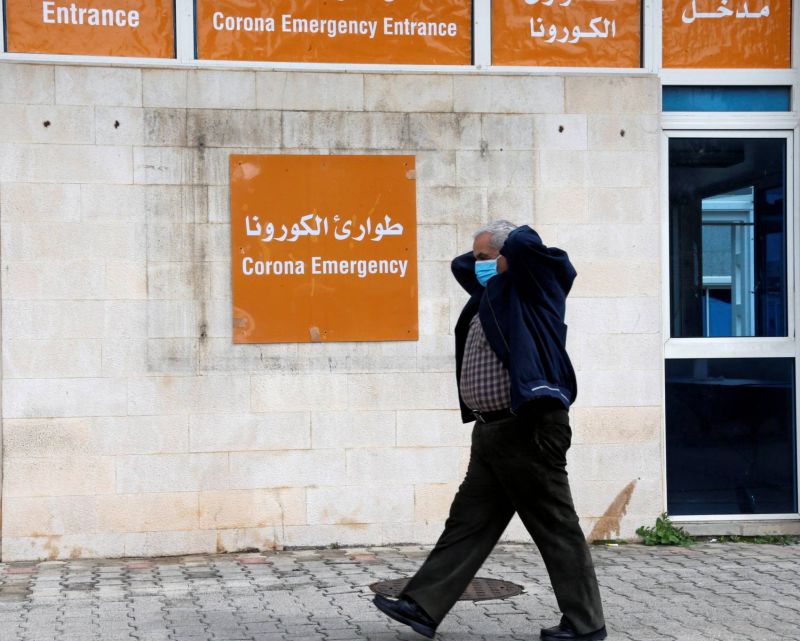Yesterday, Prime Minister Hassan Diab declared a state of “general mobilization” in Lebanon until the end of March 2020 to face the coronavirus threat. During such health emergencies, it is common for individuals to feel stressed and worried.
The American Psychological Association (APA) recently indicated what to expect during such periods in terms of psychological functioning, and how to cope with being distant from others and previous lifestyles.
Common sources of stress during such times include a drop in sensory stimuli, social engagement, and meaningful activities. Other sources of stress might include financial strains and a lack of access to typical coping strategies.
Research also shows that during a period of social distancing, quarantine or isolation, you may experience fear, anxiety, depression, boredom, anger, frustration or irritability –in addition to stigmatization if you are sick or have been exposed to someone with COVID-19. People with pre-existing mental conditions, healthcare employees, and individuals with disabilities are at increased risk of psychological distress.
Experts suggest that planning ahead by considering how you might spend your time, who you can contact for psychosocial support and how you can address any physical or mental health needs you or your family may have prior to social distancing, quarantine, or isolation can be beneficial.
Psychologists also advise to limit news consumption to reliable sources, create and follow a daily routine, stay virtually connected with others, maintain a healthy lifestyle, and use psychological strategies to maintain stress and stay positive.
See also: Lebanon declares a state of emergency
Strategies include examining your worries and aiming to be realistic in your assessment of the actual concern as well as your ability to cope. Focus on what you can do and accept the things you can’t change. You can also download smartphone applications that deliver mindfulness and relaxation exercises. Focusing on the altruistic reasons for social distancing, quarantine or isolation can also help mitigate psychological distress.
Following a period of social distancing, quarantine or isolation, you may feel mixed emotions, including anxiety, relief and gratitude, frustration or anger, feelings of personal growth and increased spirituality. If you experience symptoms of extreme stress, or an increase in substance use, seek help from a health-care provider.
Institutions and organizations in Lebanon that offer mental health services, support or further advice for individuals who suffer from mental health conditions or are experiencing psychological distress:
Embrace is a non-profit organization (NGO) working to raise awareness around mental health in Lebanon.
The NGO has national emotional support and suicide prevention helpline, a specialized telephone service that includes a network of highly trained operators who provide over the phone emotional support, suicide risk assessment and referrals to community mental health services.
Embrace LifeLine: Call 1564
Website: Embrace Lebanon
Email: info@embracelebanon.org
Tel: +961 1 346 226
IDRAAC is an NGO that delivers free community services, awareness programs and mental health research. IDRAAC’s activities are tailored to cover all aspects of mental health and psycho-social support needed by the society.
Website: IDRAAC
Email: idraac@idraac.org
Tel: +961 1 583583
AUBMC‘s Department of Psychiatry offers specialized clinical care to children, adolescents, and adults affected by psychiatric illness. It also provides training and education in mental health.
Website: AUBMC Psychiatry
Psychiatry Speciality Clinics Tel: +961 1 759620 | +961 1 350000, Ext. 5650
Psychiatry Inpatient Unit Tel: +961 1 350000, Ext. 7630
MIND clinics offer psychiatric and psychological services for children, adolescents, adults and elderly.
Website: Mind Clinics
Email: info@mindclinics.org
Ras Beirut Clinic Tel:
+961 1 748000 | +961 3 730475
Achrafieh Clinic Tel:
+961 1 449499 | +961 3 920717
Reliable resources for information on coronavirus and mental health:
APA
Five Ways to View Coverage of the Coronavirus
Tips to help you manage anxiety, put news reports in perspective and maintain a positive outlook.
Speaking of Psychology: Coronavirus Anxiety
In this podcast episode, psychologist Baruch Fischhoff, PhD, explains why we worry about new risks more than familiar ones, how to calm our anxiety and what are the psychological effects of being quarantined.
Coronavirus threat escalates fears — and bigotry
Psychologists look to their research to help quell anxiety about a possible pandemic.
World Health Organization
Briefing note on addressing mental health and psychosocial aspects of COVID-19 Outbreak
Resources for practitioners and healthcare professionals:
APA
COVID-19 and psychology services: How to protect your patients and your practice
Public health officials are monitoring the spread of the coronavirus.
Office and technology checklist for telepsychological services
Items to consider when setting up telepsychological service for remote clients. PDF version (PDF, 139KB)
Informed consent checklist for telepsychological services
Centers for Disease Control and Prevention (CDC)
Coronavirus: Information for Healthcare Professionals
Preparedness and safety resources:
CDC
Pandemic Preparedness Resources
When and How to Wash Your Hands
Preventing COVID-19 Spread in Communitie
World Health Organization
Getting Your Workplace Ready for COVID-19 (PDF, 604KB)
Resources for parents and caregivers:
The National Child and Traumatic Stress Network
Parent/Caregiver Guide to Helping Families Cope With the Coronavirus Disease 2019 (COVID-19) (PDF ,144KB)
National Association of School Psychologists
Talking to Children About COVID-19 (Coronavirus): A Parent Resource
NPR
Just for Kids: A Comic Exploring The New Coronavirus
SAMHSA
Talking with Caregivers, Parents. And Teachers during Infectious Disease Outbreaks (PDF, 12.8MB)
